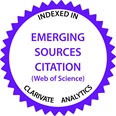Abstract
On the first of May, 2004 officials representing Poland started their work in the bodies and institutions of the European Union. Activities of Polish ministers in the Council of the European Union have been of particular significance in this context, as this institution has been the Community's most important body - the fact reflected in its scope of competence. This includes a major role in formulating EU legislation (the function that the Council performs in co-operation with the European Parliament), setting up other Community bodies and establishing their composition, supervision over Community law implementation, co-ordination of the EU economic policy as well as activities on an international arena. Decisions are mainly made in the Council through qualified majority of votes or by unanimous voting. Poland controls 27 votes out of the total number of 321 held by all the Member States. This way, in terms of number of votes we are just two votes shy of such powerful countries as Germany, France or the United Kingdom. This given Poland a very strong position in the forum of the Council, making it, at least theoretically, an essential partner as coalitions form prior to any important voting. However, as revealed by experience from Poland's presence in that body, in practice voting rarely takes place and decisions are made through consensus - even in areas in which they should indeed be subject to voting. Anyway, the real basis for co-operation among the Ministers in the Council seems to be the process of negotiation and working out a compromise acceptable to all, rather than imposing the will of majority on minority.
Abstrakt
Z dniem 1 maja 2004 r. urzędnicy reprezentujący Polskę rozpoczęli pracę w instytucjach i organach Unii Europejskiej. Na szczególną uwagę zasługuje działalność polskich ministrów na forum Rady Unii Europejskiej, instytucji, która jest najważniejszym organem wspólnotowym, co podkreślają prerogatywy przyznane temu organowi. Do najważniejszych kompetencji Rady UE należy współtworzenie prawa unijnego (funkcję tę Rada sprawuje we współpracy z Parlamentem Europejskim), kreowanie innych organów, ustanawianie ich składu, kontrolowanie realizacji prawa wspólnotowego, koordynacja polityki gospodarczej UE oraz działalność w sferze międzynarodowej. Decyzje na forum Rady podejmuje się głównie, głosując większością kwalifikowaną lub jednomyślnie. Polska posiada 27 głosów spośród 321 przypadających na wszystkie państwa członkowskie. Dysponujemy zaledwie dwoma głosami mniej niż potężne Niemcy, Francja czy Wielka Brytania. Daje to Polsce niezwykle silną pozycję na forum Rady Unii, czyniąc z nas teoretycznie ważnego partnera do kształtowania koalicji przy ewentualnych głosowaniach. Doświadczenia wynikające z obecności Polski na forum tego organu pokazują jednak, iż praktycznie nie dochodzi do głosowań, a decyzje nawet w tych aspektach, które powinny być głosowane, zapadają w drodze consensusu. Podstawą współpracy ministrów na forum Rady UE jest proces negocjacji i uzyskanie "złotego środka", a nie narzucanie woli mniejszości przez większość.
Recommended Citation
Adamczyk, A. (2005). Polska w Radzie Unii Europejskiej - pierwsze doświadczenia po akcesji. Problemy Zarządzania, 3(9), 126-137. Retrieved from https://press.wz.uw.edu.pl/ems/vol3/iss9/8
First Page
126
Last Page
137
Page Count
11
Publisher
University of Warsaw







